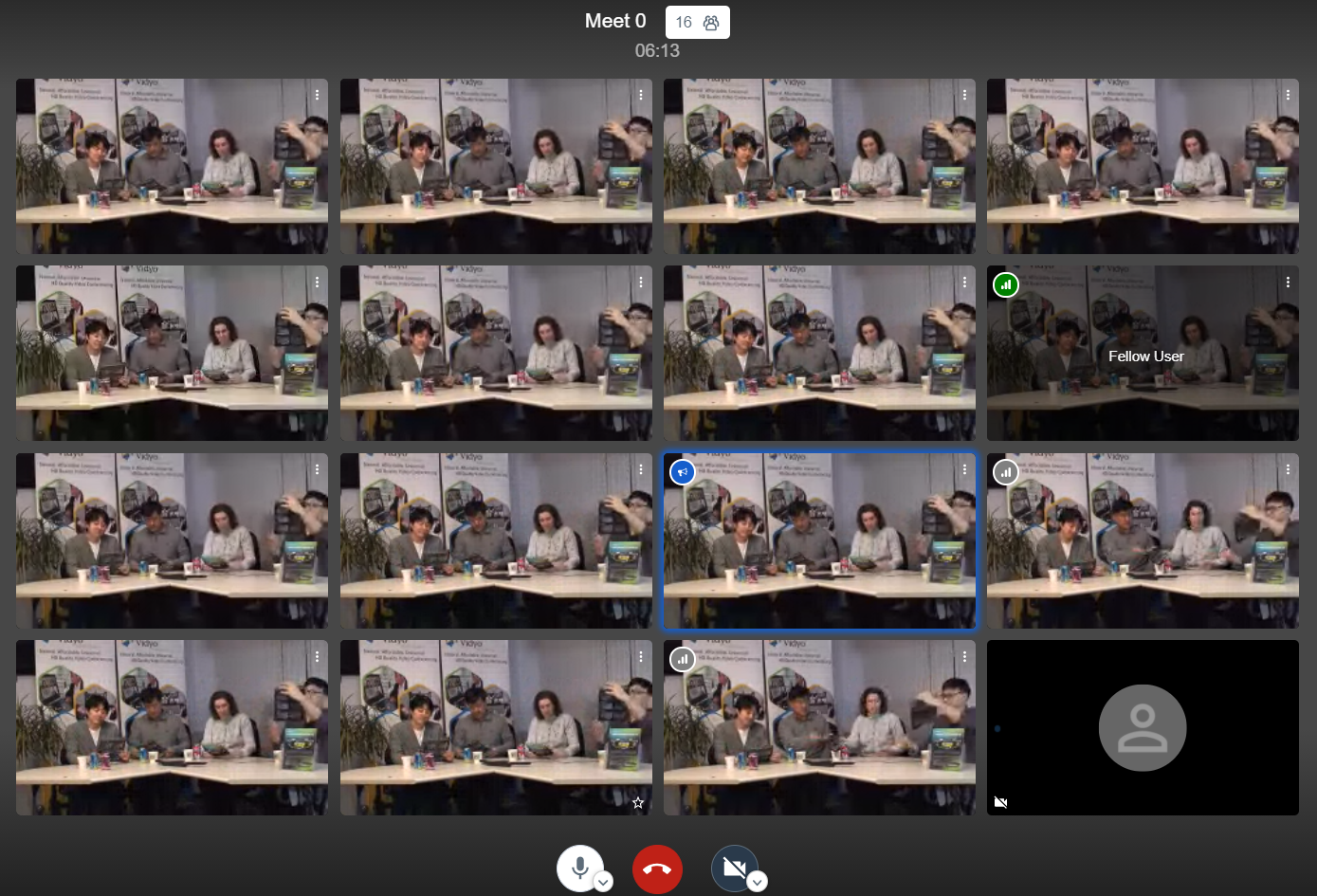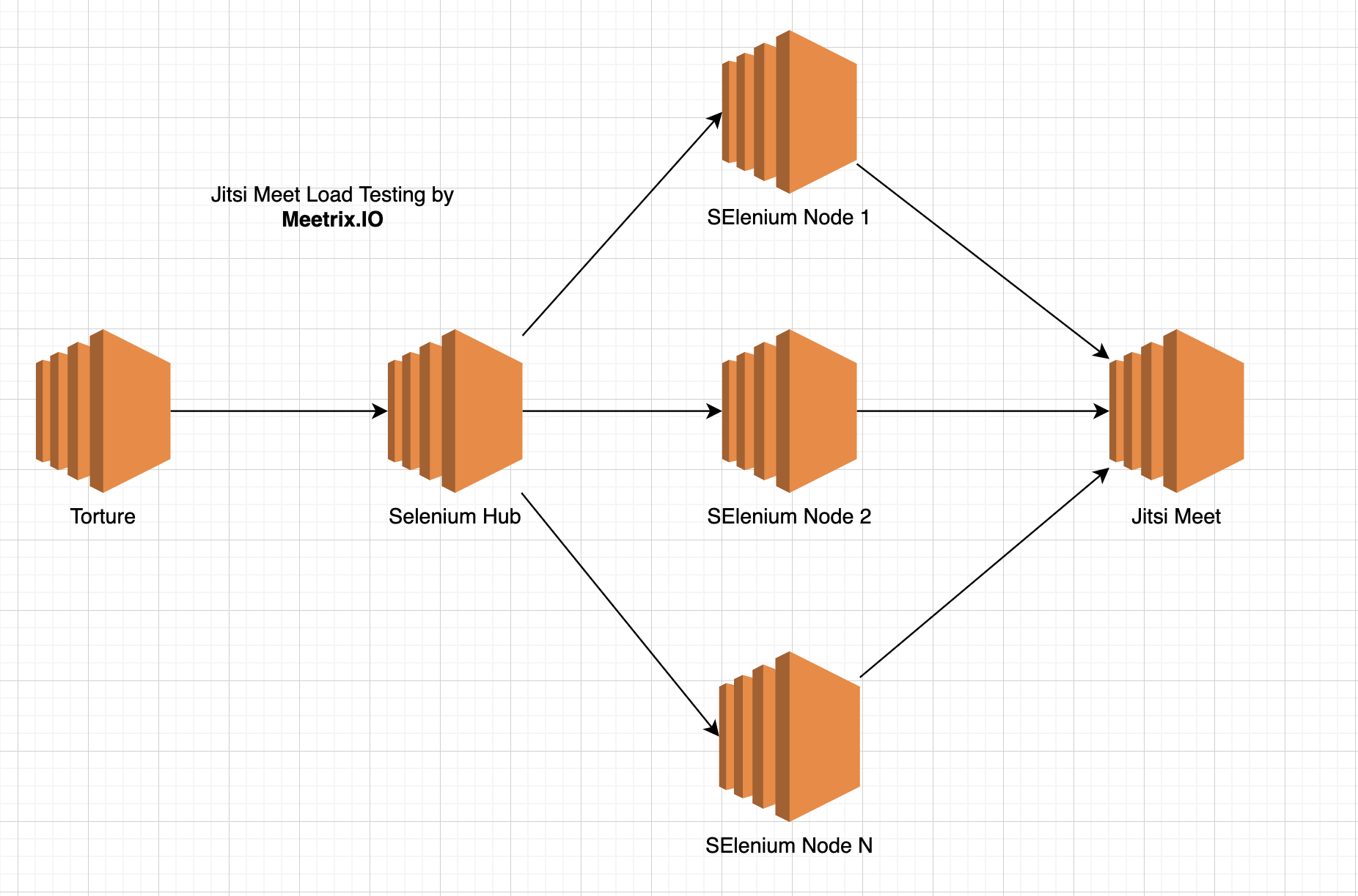Load Testing Jitsi Meet
Link: https://meetrix.io/blog/webrtc/jitsi/jitsi-meet-load-testing.html
Make sure your Jitsi Meet infrastructure is ready for production
By deploying a horizontally scalable Jitsi Meet setup, you can scale your Jitsi Meet conferencing infrastructure to cater thousands of concurrent users. But, before you go live you might want to make sure that your infrastructure is capable of handling the desired number of concurrent users. Jitsi Meet Torture is a tool that can be used to run tests against a Jitsi Instance and it is capable of load testing Jitsi Meet.

Selenium Grid
To simulate hundrads of concurrent users, we need to deploy Jitsi Meet Torture agains a selenium grid setup. There would be a selenium hub which accepts commands from Jitsi Meet Torture and pass them to selenium nodes. You can have hundrads of selenium nodes to simulate users.

Minimal setup with docker-compose
-
Install Docker. You can use following scripts on Ubuntu 18.04
sudo apt-get update sudo apt-get -y install apt-transport-https ca-certificates curl software-properties-common curl -fsSL https://download.docker.com/linux/ubuntu/gpg | sudo apt-key add - sudo add-apt-repository -y \ "deb [arch=amd64] https://download.docker.com/linux/ubuntu \ $(lsb_release -cs) \ stable" sudo apt-get -y update sudo apt-get -y install docker-ce sudo usermod -a -G docker $(whoami) -
Install the latest version of Docker Compose
-
Create a
docker-compose.ymlfile with following content.version: "3.3" services: torture: image: meetrix/jitsi-meet-torture hub: image: selenium/hub:3.141.59 node: build: ./node image: meetrix/jitsi-meet-torture-selenium-node volumes: - /dev/shm:/dev/shm depends_on: - hub environment: HUB_HOST: hub -
Please note that
nodeare configured to run only one chrome instance at a time. Run the setup withdocker-compose up -d --scale node=2to run two nodes. -
docker-compose exec torture /bin/bash -
Change
<YOUR_JITSI_MEET_INSTANCE_URL>to your Jitsi Meet installation (for examplehttps://meet.example.com) in following script and run to perform the test.
./scripts/malleus.sh --conferences=1 --participants=2 --senders=2 --audio-senders=2 --duration=300 --room-name-prefix=test --hub-url=http://hub:4444/wd/hub --instance-url=<YOUR_JITSI_MEET_INSTANCE_URL>
Running the test with large number of nodes
You can scale the number of nodes with docker-compose up --scale node=<NUMBER> or you can create a VM using same docker images for selenium hub and selenium-node. Then you can use an autoscaling mechanism (Such as Autoscaling groups on AWS) to scale the number of nodes.
Looking for commercial support for Jitsi Meet ? Please contact us via hello@meetrix.io
Updated:

No comments to display
No comments to display